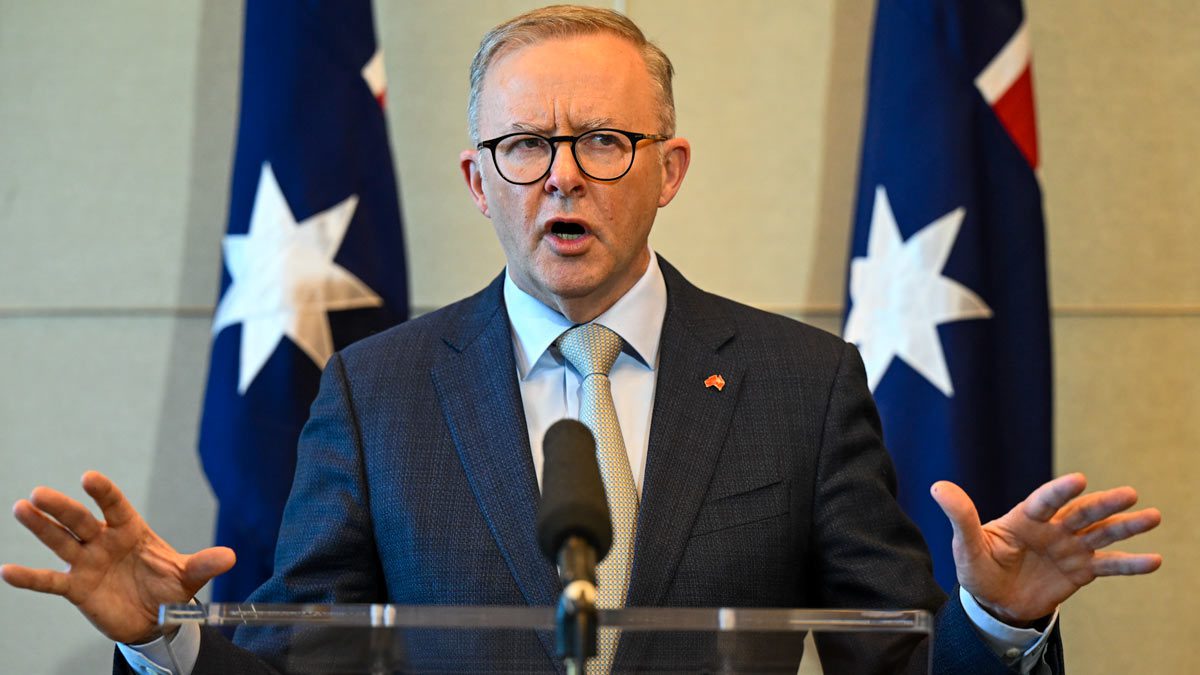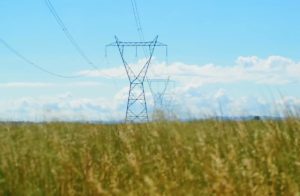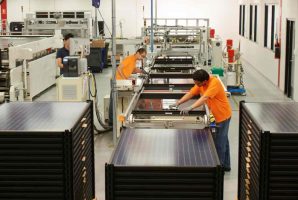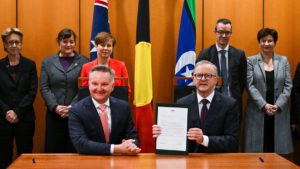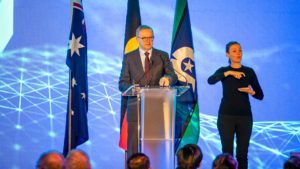Prime minister Anthony Albanese says the former Morrison government’s lack of meaningful climate change policies had caused trade negotiations with the European Union to stall, as meets with European leaders and attempts to patch up Australia’s diplomatic relationships.
Albanese is currently in Spain to meet with world leaders ahead of gatherings of the G7 and NATO blocs, and to progress trade negotiations with European leaders, which he says had been jeopardised by the Morrison government’s refusal to commit to stronger emissions reduction targets.
“The perception by Europe, and indeed by the world, that Australia was a handbrake on global action on climate change was clearly hindering our capacity to enter into economic relationships with our European friends,” Albanese said.
“The EU trade deal is critical. Europe is Australia’s second largest trading partner and it is the second largest investor in Australia. The European economy is A$24 trillion strong and with 450 million people. This is a market where Australia can really benefit from progressing this trade deal.”
The European Union has sought to integrate climate change commitments within the trade deals it negotiates with other countries. This includes locking in formal commitments to the goals of the Paris Agreement within any future free trade agreements, and the prospect of imposing carbon border taxes on countries seen to lack sufficient controls on their own greenhouse gas emissions.
The former energy and emissions reduction minister under the Morrison government, Angus Taylor, resisted calls to formally state its support for stronger climate action international agreements – which included pushing back on demands from the UK government to include agreements around climate action in a post-Brexit trade agreement with Australia.
Former trade minister Simon Birmingham had dismissed the push to include climate commitments in an EU trade deal as “unprecedented”, saying the deal needed to focus only on the “commercial” aspects of trade.
But it has been widely understood that this reticence became a major sticking point for EU trade negotiators – causing negotiations to stall – with members of the European Union warning that they would refuse to ratify any deal struck with Australia unless stronger climate commitments were agreed to.
Albanese said Australia’s re-engagement with global efforts to tackle climate change – and the new government’s commitment to a stronger 2030 emissions reduction target – had helped ease the tensions that had grown under the former Morrison government.
“Australia just wasn’t seen as being fair dinkum, to use as Australian term, about taking action on climate change,” Albanese said from Madrid.
“That was something that was having an impact on our relations with our friends here in Europe. Europe is considering, for example, penalties on nations that aren’t taking action on climate change.”
“It was very clear that the changed position of Australia has been noticed, has been welcomed.”
At the most recent round of international climate talks – the COP26 climate talks in Glasgow – Australia was singled out for criticism for its refusal to set a more ambitious 2030 emissions target, for refusing to join commitments to reduce coal use and methane emissions, while using the conference to advertise Australian fossil fuel companies.
Albanese said Australia’s trade relationship with Europe had also been damaged by how former prime minister Scott Morrison handled Australia’s cancellation of an order of submarines with France – which had lead to French president Emmanuel Macron accusing Morrison of lying about Australia’s intentions.

